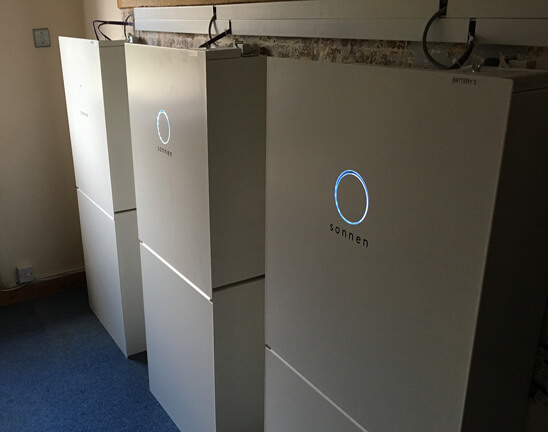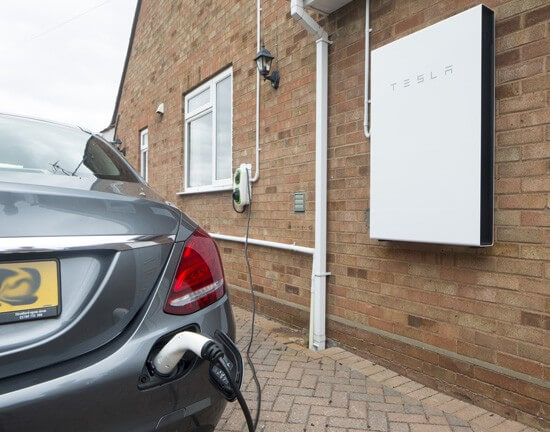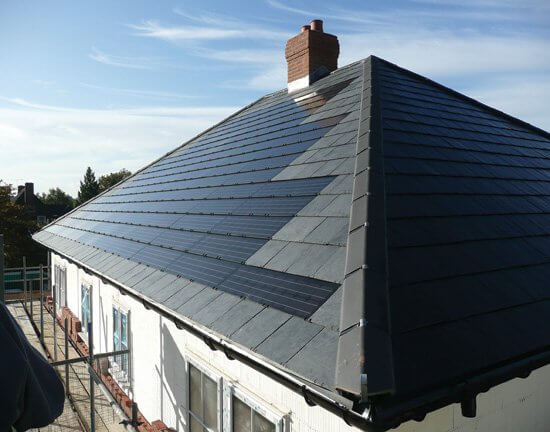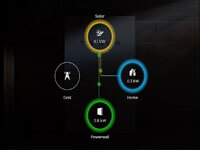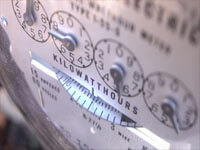There are two ways of integrating a battery with your solar PV array. We explain the difference.

AC Coupled vs. DC Coupled Batteries
What are AC and DC coupled batteries
Batteries can be wired into a renewable energy system in two ways, known as AC and DC coupled. In the majority of cases homeowners won’t notice the difference in terms of functionality – both will power your home when the sun has gone down, both will be able to charge from the grid, and both can ride through power cuts when set up to do so.
There are, however, some advantages and disadvantages to each method. What you choose will come down to efficiency, what kind of features you would like from your battery, installation constraints, budget and brand.
First of all, a few basics:
- The electricity produced by solar panels is direct current (DC) electricity
- Electricity is stored in batteries as DC electricity
- Energy for use in the home is alternating current (AC) electricity
- To convert between DC and AC electricity it must pass through a device called an inverter. Inverters are not 100% efficient, and there is about a 5% loss each time electricity is converted.
Two different types of battery
DC coupled is more efficient
AC coupled is easier to retrofit
AC coupled can be used with any solar inverter
What is a DC coupled battery?
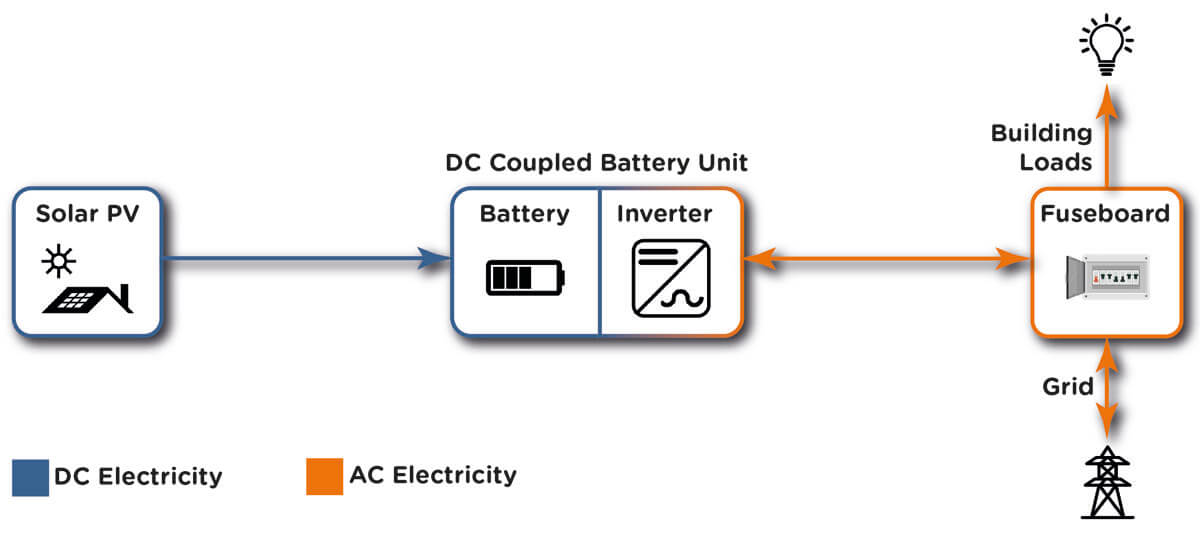
As you can probably infer from the name, a DC couple battery connects on the DC side of the system. Electricity from the solar panels gets stored in the battery before it has been converted into AC electricity for use in the home.
A DC coupled battery does not discharge by following the solar generation profile. Instead, it will discharge electricity as it is needed in the home, or for export if the batteries are full, through its own DC to AC inverter.
The inverter on a DC coupled battery is bi-directional, so it is possible to charge the battery from the grid. This is useful in the winter when solar generation is low, or if you are trying to take advantage of time-of-day tariffs.
What are the advantages of a DC coupled battery.
The main advantage of DC coupled batteries is efficiency. There is only one conversion between DC and AC electricity (in the battery inverter) before electricity is used in the building. This means only 5% of the energy will be lost between generation and use. DC coupled battery manufacturer (SolarEdge) quote a peak round trip efficiency of greater than 94.5%.
By contrast AC coupled batteries have 3 conversion points leading to efficiency loses of 10-15%.
Furthermore, there are fewer components in a DC coupled system. This takes up less space, minimises the number of points of failure, and reduces the installation cost.
Because there is only one inverter in the system, using DC coupled batteries can make it easier to obtain permission to connect to the grid. DC coupled batteries are also a good approach in cases where the grid network operators need to limit the overall capacity of the system.
Batteries and Smart Grids
See our range of home batteries and find out which model suits you best.
What is an AC coupled battery?

An AC coupled battery connects directly into a fuseboard in the home. The fuseboard is AC electricity, hence the name ‘AC coupled’.
Looking at the system as a whole, DC electricity is generated by the solar panels, and passes through a solar inverter to convert this to AC electricity. This is wired into the fuseboard in the home. From there this AC electricity can be used in the home, exported to the grid, or stored in the battery.
To store energy in the battery, the electricity must be converted back to DC electricity again. AC coupled batteries feature a bi-directional inverter as part of the unit, which make the necessary conversions as the battery charges and discharges.
What are the advantages of an AC coupled battery
The main advantages of AC coupled batteries, such as the Tesla Powerwall 2, are their compatibility and features. AC coupled batteries can work seamlessly with any type of solar inverters without constraints. In an AC coupled system the battery and solar PV both wire into the fuseboard independently, and can be considered separately.
This makes AC coupled a good choice for retrofit systems as the battery can be installed without any needing to touch the existing solar PV. By contrast, a DC coupled system would need to replace the existing solar inverter with the DC battery/inverter unit.
The lack of constraints for connecting AC coupled batteries is very useful if you already have solar installed or want to use a particular inverter model which doesn’t have a DC coupled battery option you like. For instance you may want to use micro-inverters, which don’t have a DC coupled battery option.
Tesla Powerwall 2
The Tesla Powerwall 2 is an AC coupled battery, and the most popular choice for a home battery
Find Out More
How a Home Battery Works
Find out how to store excess solar energy for use in the evenings at night
Using Batteries in a Powercut
Added energy security and never have the inconvenience of a powercut again
Tariffs for batteries
Find out how to get the best value from your battery with innovative electricity tariffs.






